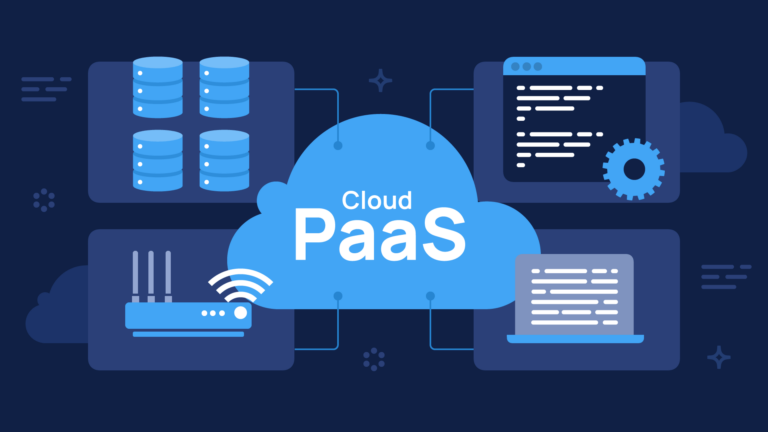Hi, I'm Pasan Chamikara.
Platform Engineer with Strong Interests in DevSecOps and Machine Learning. Currently, I'm based in Sri Lanka, Leading and Architecting product development at Athlan Technologies.
Skills
Platform Engineering & DevSecOps
• Implementing DevOps and DevSecOps practices, and pipelines, with a core focus on smooth seemless integrations.
• Implementing proper Monitoring Solutions and Building customizations and tools to optimize result management.
• 3xKubernetes Certified (CKS, CKA, CKAD) and with major skills in Python (FastAPI, Django, Flask) and in Golang (SDK and CLI builds) have implemented numerous enhancements for client requested customizations.
Machine Learning and AI (Reinforcement Learning)
• Numpy, Pandas and GPU driven programming.
• Amazon Sagemaker, Scikit learn, MLflow
• OpenAI Gymnasium
• Have worked in Deep Q-Learning implementation Scenarios.
Leading Teams and Management
• Currently managing Engineering and TechOps teams at Athlan Technologies
• Have worked in Globally fully remote teams Since 2018
• Founded an early startup and was a founding engineering team member at a couple of another startups.
• Have acted as a SME in consultancy roles for DevSecOps
• Have overseen growth and development of Junior Engineers.
Experience
Athlan Technologies (External Consultant)
Lead Engineer - Engineering and Managed Services
January 2024 - Present
Intuition Machines
Senior Software Support Engineer
March 2023 - August 2023
Scybers
External DevSecOps Consultant
January 2022 - May 2022
Engine Yard
L3 Support Engineer / Junior Platform Engineer
February 2019 - March 2023
Microdeck
Software Engineer - R&D (Contract)
September 2018 - November 2018
Vevro
Software Engineer
January 2018 - August 2018
Sri Lanka CERT | CC
Intern - Information Security
August 2016 - July 2017
Education
University of Moratuwa
Master of Science in Data Science and AI (Pending Results)
2023 - 2024
Sri Lanka Institute of Information Technology
BSc (Hons) in IT Specializing in Cyber Security
2014 - 2017
University of Colombo
BSc in Biological Science
2015 - 2018
Opensource Contributions
Cloudsploit
• https://github.com/aquasecurity/cloudsploit/pull/1122
• https://github.com/aquasecurity/cloudsploit/pull/1160
• https://github.com/aquasecurity/cloudsploit/pull/1119
Election Commission of Sri Lanka (Independent Contributor)
• https://github.com/ECLK/IncidentManagement/pull/447
Engine Yard Kontainers (EYK)
• https://github.com/trilogy-group/devgraph-eyk-controller-sdk-go/pull/3
• https://github.com/trilogy-group/devgraph-eyk-controller-sdk-go/pull/2
• https://github.com/trilogy-group/devgraph-eyk-controller-sdk-go/pull/1
• https://github.com/teamhephy/controller/pull/154 (Hephy Controller Project)
Worklenz
• https://github.com/Worklenz/worklenz/pull/33
Recent Work

Engine Yard Kontainers (EYK)
With my team members at Engine Yard, I contributed in developing a few core features of the Engine Yard Kontainers platform which was based on Kubernetes and Hephy Controller.
I contributed to develop, a few of it's major features which included Volumes Management.

AdoptAPet.lk (Initial Phase)
An online platform to find a caring shelter for the voiceless.
Research
AutoSOC: A low budget flexible security operations platform for enterprises and organizations
This study introduces the Secure Physical Drive, a digital vault, as a response to prevailing security vulnerabilities in current data transfer techniques. Incorporating a physically fortified enclosure, IoT-integrated sensors, and a robust tracking algorithm, this drive guarantees maximal security during large amounts of critical data transport physical drives. The proposed solution notably mitigates the likelihood of data breaches during transit, establishing itself as a reliable shield for safeguarding classified and sensitive information. Through an exhaustive assessment of existing data transfer methods, the paper analyzes the Secure Physical Drive's efficacy against diverse attack scenarios. This groundbreaking methodology holds substantial promise in bolstering data security during transit, thus providing a resilient defense against potential breaches and attacks.
https://ieeexplore.ieee.org/document/9107599
Co-Authors: MIM Cooray, LSAM Wickramasinghe, YMS Koshila, KY Abeywardhana, AN Senarathna
A-STEM: Advanced Storage Toolkit for Encryption and Migrations
This study introduces the Secure Physical Drive, a digital vault, as a response to prevailing security vulnerabilities in current data transfer techniques. Incorporating a physically fortified enclosure, IoT-integrated sensors, and a robust tracking algorithm, this drive guarantees maximal security during large amounts of critical data transport physical drives. The proposed solution notably mitigates the likelihood of data breaches during transit, establishing itself as a reliable shield for safeguarding classified and sensitive information. Through an exhaustive assessment of existing data transfer methods, the paper analyzes the Secure Physical Drive's efficacy against diverse attack scenarios. This groundbreaking methodology holds substantial promise in bolstering data security during transit, thus providing a resilient defense against potential breaches and attacks.
https://ieeexplore.ieee.org/document/10417489
Co-Authors: Ravindu Prasad Pathirana, Heshan Keshawa Basnayaka, Avishka Kanchana Bandara, Ravindu Manupriya Rajasinghe, Amila Nuwan Senarathne, Pradeep Abeygunawardhana
HoneyIQ: Deep Reinforcement Learning-based approach for Enhancing honeypot adaptability (Ongoing)
Honeypots could be utilized within a given network for several reasons. One is that it would waste resources of the attackers and the second being it would provide ample information about the behavior of the attacker. Threats do differ from one session to another. Therefore, for new threats to be efficiently identified and treated based on their severity, it would be required to utilize a more dynamic method. The deep Reinforcement Learning (Deep Q-Learning based) approach would be one way to solve this kind of issue. Most of the solutions existing within the present market treat the attackers without considering their severity. But to keep the attacker in the loop, it would be required to dynamically adjust the honeypots. To dynamically adjust the honeypots, a deep-Q-learning-based microservice is proposed. The service would take the inputs from the deployed collector agents in honeypots and do the processing which would send recommendations to the respective honeypots to adjust their behaviour. Through this research it is also expected to evaluate the efficiency of the solution against Zero-day attacks.
Co-Contributors: Dr. Thanuja Ambegoda
Get in Touch
If you have a project or a new opportunity that you'd like to discuss, please get in touch with me at
meow [at] pasan [dot] cc.